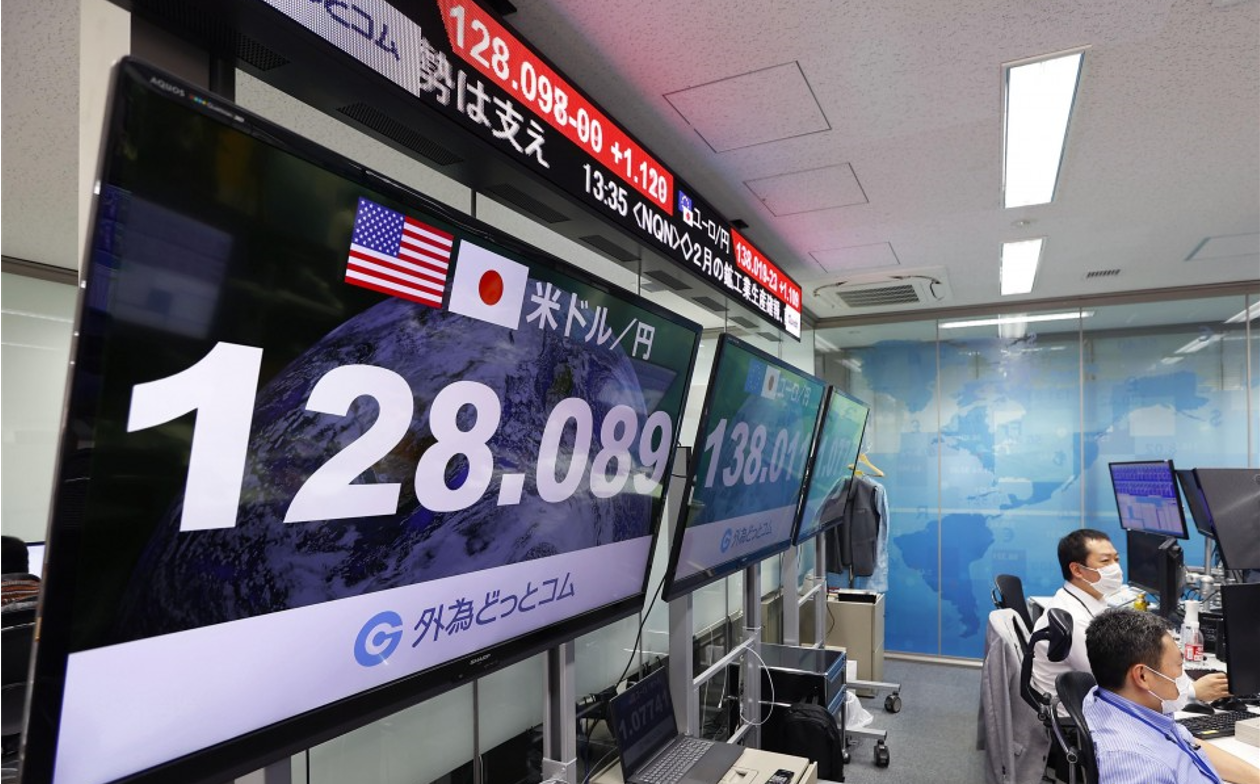Tue Apr 19, 2022
Tuesday / April 19
USDJPY
The Japanese yen fell against the dollar in the foreign exchange markets and at some point, was sold just at 127 per dollar on Monday. It is the first time since May 2002 that the price will reaches that level.
The government and the Bank of Japan have repeatedly made remarks to restrain the depreciation of the yen. The Bank of Japan's governor, Kuroda, said Monday that, "the rapid depreciation of the yen is a minus." The background is Japanese companies and individuals have become more dissatisfied with the rising prices that are amplified by the depreciation of the yen. There is a strong sense of political crisis over the depreciation of the yen and high prices ahead of the upcoming upper house election this summer.
The government and the ruling party are wary of rising prices of food and daily necessities. The depreciation of the yen will accelerate the soaring price of imported goods.
Ukrainian war
Ukrainian President Volodymyr Zelensky announced Monday that Russia's long-awaited offensive in the Donbas region had begun.
Russian forces pulled back from Kyiv earlier this month to refocus their efforts on the Donbas. U.S. officials and analysts expect Russia to try to overwhelm and encircle Ukrainian forces after failing in its initial push to seize the capital.
"Now we can already state that the Russian troops have begun the battle for the Donbas, for which they have been preparing for a long time,” Zelensky said in a video posted to Telegram.
"A very significant part of the Russian army is now concentrated for that offensive. No matter how many servicemen get thrown there, we will fight, we will defend ourselves. We will do that every day," Zelensky vowed.
Ukrainian media reported a series of explosions, some powerful, along the front line in the Donetsk region, with shelling taking place in Marinka, Slavyansk and Kramatorsk. Ukrainian officials and local media also said further explosions were heard in Kharkiv, Mykolaiv in the south and Zaporizhzhia in the southeast.
Zelenskiy's chief of staff Andriy Yermak called it "the second phase of the war" and assured Ukrainians their forces could hold off the offensive. "Believe in our army, it is very strong," he said.
US stocks
U.S. stocks closed lower on Monday after a session which saw all three benchmarks slip between positive and negative territory.
The Dow Jones Industrial Average fell 39.54 points, or 0.11%, to 34,411.69, the S&P 500 lost 0.9 points, or 0.02%, to 4,391.69 and the Nasdaq Composite dropped 18.72 points, or 0.14%, to 13,332.36.
Meanwhile the Biden administration will no longer enforce a U.S. mask mandate on public transportation, after a federal judge in Florida on Monday ruled that the 14-month-old directive was unlawful, overturning a key White House effort to push more masking and vaccination into the third year of the pandemic.
Corn prices
The surging price of corn hit another milestone on Monday as the cost of global commodities continues to push higher.
The contracts for July corn futures were trading above $8 per bushel on Monday, the highest level since September 2012. The contracts were trading near $6 per bushel at the start of the year.
Corn is just one of several agriculture commodities that has seen surging prices in recent weeks, in part due to the war in Ukraine. Ukraine is a major exporter of wheat and other items, such as sunflower oil, while Russia is a key producer of wheat and many of the chemicals used in fertilizer.
